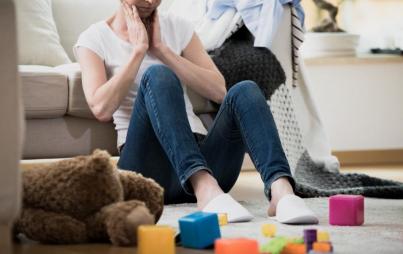
Children of divorce
In any case, no one really loves divorce — well some people probably do, my mom baked a cake and threw a party, complete with balloons, to celebrate one of hers —but regardless, it’s still happening, and much of the time it really should happen.
Good marriage is great, great marriage is amazing, and bad marriage? It’s not good for anyone. American divorce rates are hanging at 40-50% for first time marriages, and those numbers go up exponentially for each subsequent marriage —presumably because once you’ve endured it, it’s less intimidating, and therefore easier to endure again. And again.
In any case, no one really loves divorce — well some people probably do, my mom baked a cake and threw a party, complete with balloons, to celebrate one of hers —but regardless, it’s still happening, and much of the time it really should happen. It’s not easy to navigate, especially when you have kids thrown in the mix, but all is not lost. Here are some tips to help you navigate raising children during and after your separation and divorce.
Leave them out of it. Well, mostly. Give them the information they need: what is happening, what to expect, who is living where. Discussing the details of the ‘why’ isn’t necessary and certainly isn’t helpful. It’s good for kids to hear that sometimes people are happier apart. But they don’t need to know who did what to whom. Ever. Regardless of how moronic your ex (or you) may be, degrading each other in front of your children will only hurt you.
Tell them it’s not their fault. This goes beyond just not giving them details and extends into their personal feelings. The self-centeredness of childhood is real. They often aren’t able to internalize that things and people exist independent of each other. They will often blame themselves, for everything, including your divorce.
Get therapy. For them and yourself. Give them a safe space to share anger and sadness and the fear and disappointment of their family disintegrating. Let them go alone if they want to.
Do not turn your child into your confidant. I know this seems obvious, but when you yourself are undergoing the trauma of separation and divorce, it’s tempting to want to talk with your child on a more personal level. They aren’t your parent and they are processing their own feelings. They don’t have time to process yours.
Maintain a relationship with your ex. This is the hard one. I know. But it’s the most vital. You may absolutely despise them, but, unless they were abusive to you or your children, or it is harmful for you to sustain a relationship with them, then do. Be cordial to one another. Respect one another. You’re an adult. You got married. You had children. Your children didn’t choose divorce and it’s not their fault you’re getting one. Seeing you and your former partner relate to each other as mature adults will be the most positive and stabilizing practice you engage in.
Maintain a relationship with your ex, Part 2. This one is even more difficult. Try to share birthdays. Holidays aren’t realistic, usually, but birthdays are doable. We’ve been able to celebrate our kids’ birthdays as a team — me, my ex, and our new spouses. This goes for school functions. There is no better gift you can give your child than the gift of being celebrated by both of their parents together. When things are in flux there is nothing that will help your children more than the sense of stability they will feel when you and their other parent aren’t arguing.
Divorce is never easy. Ever. But it doesn’t automatically mean ill-adjusted kids. Children are adaptable and seeing a well navigated divorce can actually impress on them that the hardest things in life can be handled with grace and maturity.







